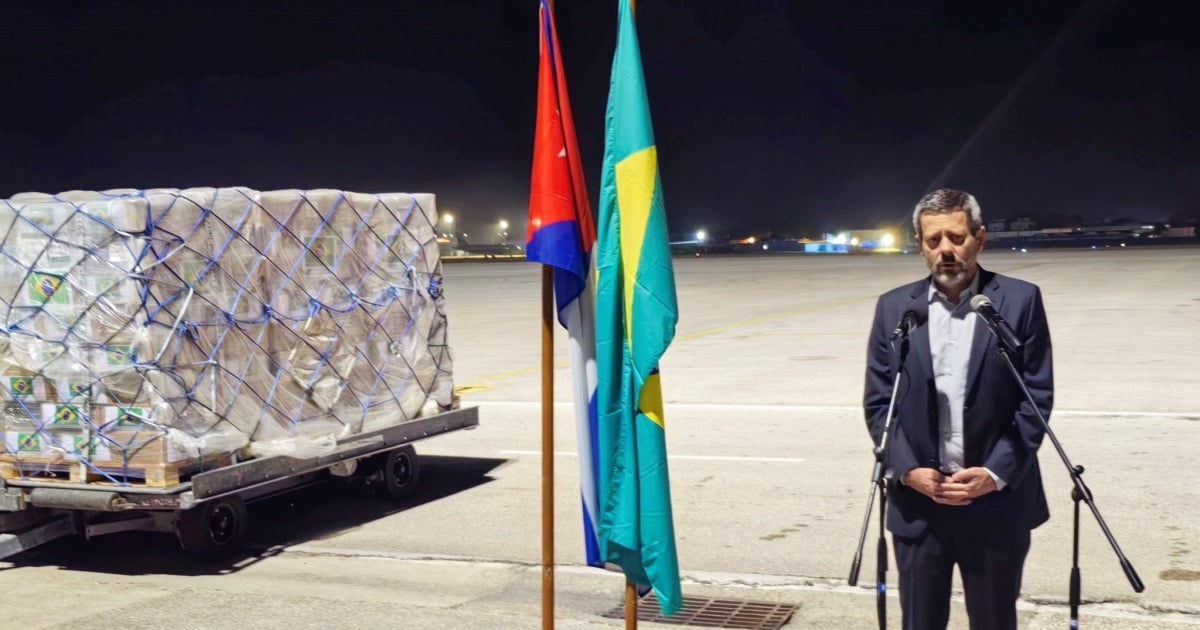
Recently, Cuba received a shipment of humanitarian aid from Brazil, allegedly intended to alleviate the difficult situation faced by those affected by the recent hurricanes that struck several provinces in the country.
The shipment includes 10 tons of dehydrated food and adds to the 30 water purification units that Brazil had already donated, according to state-run media.
The Brazilian ambassador in Havana, Christian Vargas, announced that another shipment of aid, which will include kits for the installation of solar panels and medication, will arrive soon.
Deborah Rivas, Cuba's Deputy Minister of Foreign Trade and Foreign Investment, expressed her gratitude for the contributions from the South American giant and also mentioned the recent shipment of powdered milk following the passage of the storms.
This gesture underscores Cuba's reliance on international solidarity to confront the ongoing crises affecting the Caribbean nation.
This supportive gesture—alongside other recent humanitarian aid deliveries—arrives in a context where the Cuban economy continues to be in crisis, exacerbated by a lack of self-sufficiency and the need for external assistance to meet basic needs.
In the past month and a half, Cuba has faced a devastating scenario with the passage of two cyclones, two significant earthquakes, and two total blackouts, which have further worsened the already critical economic, food, and energy situation on the island.
A wave of humanitarian aid: Will it reach the victims?
Governments such as those of Mexico, Japan, Russia, and Venezuela, as well as multilateral organizations and non-governmental organizations, have announced significant contributions to alleviate the most urgent needs of the country, whose population is on the brink of despair.
The European Union and the United Nations sent 94 tons of medicine and medical supplies, while Venezuela committed 300 tons of aid.
Spain contributed nine tons, Japan allocated materials worth $160,000, and Norway channeled $600,000 through the UN Central Emergency Response Fund.
Likewise, Slovakia sent 40 tons of powdered milk through the World Food Programme.
China, for its part, sent humanitarian assistance and Liu Junfeng, the vice president of the National Agency for International Development Cooperation (CIDCA), who held meetings with the leader Miguel Díaz-Canel and other officials.
Among the NGOs, the International Red Cross stood out with 24 tons of aid, and solidarity groups for Cuba from abroad have made significant contributions.
In response to the severity of the blackouts, several countries have also included energy supplies in their donations.
Mexico, led by President Claudia Sheinbaum, sent 400,000 barrels of crude oil, while Russia committed 80,000 tons of diesel and equipment for the Cuban electrical system valued at 62 million dollars.
In the midst of this situation, the Cuban Government forecasts a further contraction of the GDP, following a decline of 1.9% in 2023.
Filed under: